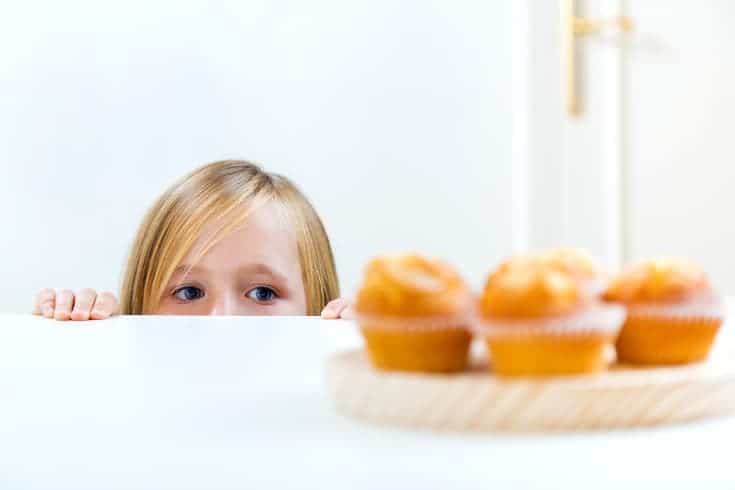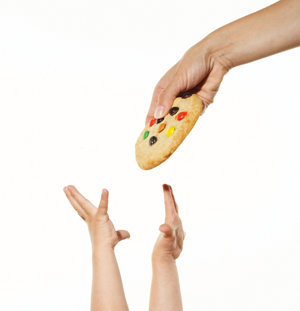Using Food as a Punishment or a Reward for your Kids? What You Need to Know.

It is more common than we think; parents running to the store or ordering their child’s favorite food to reward or comfort them. Whether your child has made a great achievement or is feeling discouraged, food can be used as a mechanism to reinforce certain behaviors.
Many people feel that this is normal and that there cannot be any harm. But when food is consistently used either as a reward or for comfort, your child’s perspective changes. Your child can lose touch with his or her body’s natural signals. They may overeat or not eat enough, leading to food as a coping mechanism for emotions as they arise.
Food is an integral part of our lives.
We use birthday cakes to celebrate birthdays, or we may add candy to a goodie bag to give out to the players after a team wins. This does not mean that we can never use food as a reward in any situation. It only becomes a concern when food is regularly used to express emotions or to help cope with difficult situations.
 This area has been heavily researched, and the research demonstrates that kids whose parents use food to reward behavior are more likely to consume more overall calories and fats. These facts and behavior patterns don’t just arise from parents alone, it can be influenced by school teachers, babysitters, or grandparents, and because these factors are out of your control, the best thing you can do is change the pattern within your home to set the foundation.
This area has been heavily researched, and the research demonstrates that kids whose parents use food to reward behavior are more likely to consume more overall calories and fats. These facts and behavior patterns don’t just arise from parents alone, it can be influenced by school teachers, babysitters, or grandparents, and because these factors are out of your control, the best thing you can do is change the pattern within your home to set the foundation.
Identify common scenarios in your household.
Do you use food to reward or comfort your kids in any of these situations? Think about discussing school work and grades, going to bed on time, or household chores. Do you reward good grades with food? Console your child with a sweet? Or offer a snack upon completion of a task?
There is no shame in this behavior because you are not alone. Recognizing what you are doing, having the willingness to change, and learning how to console, comfort, and praise a child through alternative ways is what you can do to change the dynamic. We want you to express your emotions to your kids through words or different bonding activities. This could include playing board games as a family or taking a walk together to make them feel at ease.
When you see your child crying over a fight with their friend, or getting a bad grade in school, say what you are feeling out loud and give them a hug. If you want to celebrate an achievement, have a family movie night or take them bowling. If you are trying to cut out bad behavior, hand them a toy to play with and try not to give it a lot of attention.
Do not blame yourself.
Every parent at one point or another has used food as a reward for their kids, or to comfort them when they are disappointed. Changing the way you encourage and console your kids will help keep their relationship with food healthy and keep them in tune with their body’s internal signals (hunger and fullness). It will also teach them how to cope with their emotions appropriately, by voicing them or letting them out through tears.
It is about using words and finding healthy ways to show your kids how much you love them.
Tip – Ask your kids! They may have an idea or two up their sleeves!

About the Author: Emilie Burgess, MS, RDN, LDN s a Registered Dietitian within Home Base’s Warrior Health and Fitness Program and Intensive Clinical Program. Emilie brings her love for performance nutrition, wellness, and cooking to Home Base to help each person find a healthy relationship with food. She has volunteered for two NCAA Division-I Sports Nutrition programs around the country and is currently a Registered Dietitian specializing in sports nutrition and eating disorders at Laura Moretti Nutrition, a private practice in Somerville, MA. She believes in an individualized approach to nutrition counseling and wellness to help each person achieve their goals. Emilie is a member of the Academy of Nutrition and Dietetics as well as the Collegiate and Professional Sports Dietitians Association (CPSDA).


 Home Base
Home Base